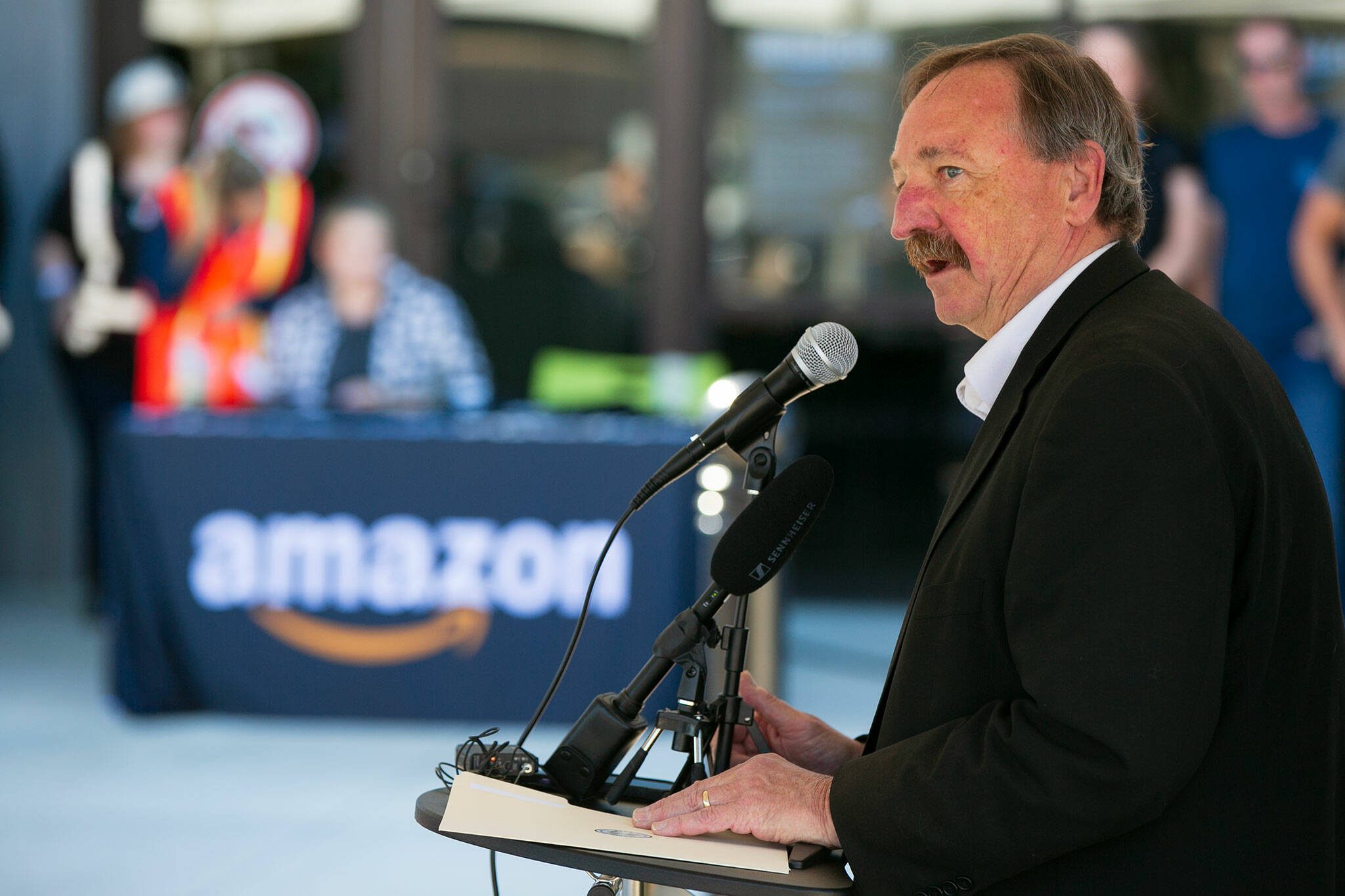EVERETT — Snohomish County could invest $114.5 million in housing and behavioral health facilities under a five-year plan County Executive Dave Somers announced Thursday.
Through the proposed plan, called the Housing and Behavioral Health Capital Fund, the county would allocate almost $93 million to create an estimated 700 affordable housing units. The county would also invest over $10 million in behavioral health facilities.
“Across our region, housing costs have risen astronomically over the last two decades, resulting in displacement and – in the worst circumstances – individuals and families entering street homelessness,” Somers said in a press release. “A crisis of this scale and human impact requires urgent, bold action.”
Revenue for the new fund comes from a 0.1% sales tax the County Council approved in 2021 to fund affordable housing and behavioral health capital investments.
The county’s human services department drafted the plan to guide these investments while considering community feedback.
Mark Smith, executive director of the Housing Consortium of Everett and Snohomish County, represented the nonprofit at public meetings.
“They took a lot of our recommendations,” he said. “We’re pleased with the plan.”
The new housing units would serve people with incomes 60% below the Area Medium Income — $146,500 in Snohomish County — who also experience mental illness, disabilities or homelessness, as well as veterans, seniors and domestic violence survivors. Of the planned housing units, 150 would provide immediate shelter as a transition out of homelessness or provide support for long-term needs.
“This plan will help chronically homeless folks get off the streets,” Smith said.
The county’s Point in Time count in January found 1,285 people experiencing homelessness.
Smith said there’s no simple answer to solving the housing crisis, but demand has outpaced supply. People are moving in, he said, and restrictive zoning laws mean there’s not enough land to build on: 70% to 80% of land in cities and towns is zoned for single family, leaving less opportunity for multi-family and apartment buildings.
“We have a significant gap in housing,” said Alessandra Durham, the county executive’s chief of staff. “We need 68,000 more housing units in order to meet demand.”
Other challenges include the gap between housing costs and wages — Snohomish County is tied with King County for the largest gap in Washington, which also ranks sixth in the country.
In Snohomish County, 32.4% of households spending more than 30% of their income on mortgage, rent or other housing needs — it would take 143,182 more affordable housing units for no household to be cost-burdened, according to county data.
Renters in the county are worse off than homeowners, with the median housing cost for renters at 30.4% of their income compared with 23% for mortgage payers, according to U.S. Census data collected from 2017 to 2021. Both percentages are higher than the national average.
Somers’ plan also seeks to reduce homelessness through behavioral health services. Homelessness is a product of “the lack of affordable housing and behavioral health facilities and services,” county documents note.
“We are lacking not only in-patient facilities, but providers,” Durham said. “We really need a system that can help patients across the spectrum of need.”
The county plans to match its $10 million investment in behavioral health with more than $3 million from the Chemical Dependency and Mental Health sales tax.
About 80% of the fund will go to the purchase, construction and preservation of housing and behavioral health units, while the rest will go toward services, in accordance with state law. Durham said it’s too early to determine where the money is going for specific construction and services.
Somers will submit the Housing and Behavioral Health Capital Fund to the County Council next week for consideration as part of the county’s 2024 budget.
How funds would be allocated
• 81% for affordable ($64.2 million), emergency bridge and permanent supportive housing ($28.5 million) for a total of $93 million;
• 9% to create a local reserve fund to construct behavioral health facilities, a total investment of $10 million;
• 7% for housing-related services, a total investment of $8.5 million;
• 3% for fund administration and evaluation, a total investment of $3.4 million;
• Additional tax revenue over the next five years for a reserve fund to afford unanticipated costs, a total investment of $20.5 million.
Correction: A previous version of this story stated that revenue for the new fund comes from a federal pandemic recovery payment and a 0.1% sales tax, but it only comes from the tax.
Sydney Jackson: 425-339-3430; sydney.jackson@heraldnet.com; Twitter: @_sydneyajackson.
Talk to us
> Give us your news tips.
> Send us a letter to the editor.
> More Herald contact information.

























